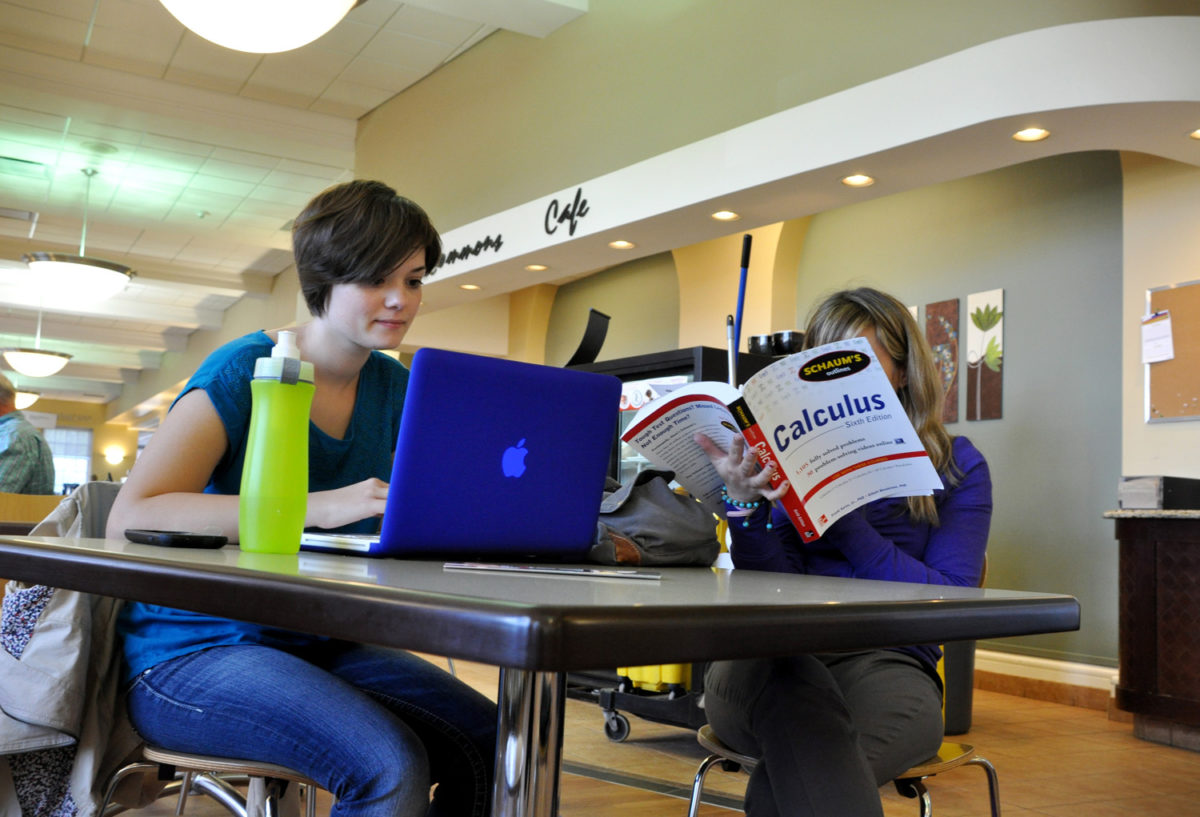
Welcome Week is officially over. You’re all moved into your new home, possibly with a new roommate. Your loans are about to come rolling in and the assignments are about to pile up before your eyes. It’s best you be prepared.
STU graduates understand what you’re going through. Before you go off and blow that student loan on pizza and brand new textbooks, it’s best you take some helpful advice from a few older and wiser STU alumni, so you can celebrate your newly-discovered freedom responsibly.
Money
Money is always tight for students. You may think that $10,000 loan you just received makes you rich, but take into consideration a few things before you spend what’s left of it after you pay your tuition and living expenses.
“Keep track of your money. Getting a student loan or spending your summer savings is immediately enticing, but you never know what surprises can come up,” said Liam McGuire, last year’s editor-in-chief for The Aquinian and now content producer intern for the Belleville Bulls in Ontario.
The best way to save your loan is to budget it and cut out unnecessary spending. Buying a coffee maker instead of buying it every day at the cafeteria will save you hundreds every year.
One of the best money savers by far is to buy used textbooks. No, they won’t be shiny and have that new textbook smell, but you will appreciate the used textbook smell once you’ve saved yourself $200.
“Above everything else, always buy used textbooks. Nobody ever really needs the ninth edition for anything. The eighth is just fine,” said Kristi Peterson, an early learning inclusion facilitator with the New Brunswick Association for Community Living in Fredericton.
You can find your books used almost anywhere now, the bookstore, Amazon and on Facebook.
Classes
“I’d tell [the first years] to take a look at the current job market before really deciding what to work towards as far as a career goes,” said Peterson.
First year is an endless opportunity to try out new things, but having a rough plan for your future will make your course selection easier, and much more enjoyable.
“If there isn’t a real need for the career now, there may not be one in four years either,” said Peterson.
Once you’re happy with your new psychology or English class, it’s important to learn to manage your time wisely. University work is nothing like your high school work load: one minute you’re bored and the next you want to jump off of a high building before writing another paper on Socrates or eighteenth century poets.
“My advice to new students would be time management, micro-manage,” said Michelle Ouellette, now working on her degree in social work.
“If you get into a routine of time management that works for you, then you will succeed. And not only succeed but you will be able to have a social life and do the things you like to do, rather than just be consumed by work.”
The best way to manage your time is to take a good look at your class schedule and distribute your workload onto days that are less busy. It will take some time to get into a rhythm but it will happen.
“Work smart, not hard, have fun but also be responsible,” said Peterson.
Alex Solak, social media community manager for Tourism New Brunswick, said studying is the easiest way for any student to succeed.
“Study. It’s basically cheating, you know the answers before the test.”
Social life
Once you’ve budgeted your money, picked the right courses and managed your time correctly, university is about to become one of your most memorable experiences.
There are many options for first years to get involved, and to make an entirely new friend base. So don’t skip out on anything that may catch your eye.
“My real advice would be to soak it all in. I’ve met some of my best friends, my girlfriend and had some great teachers over my four years,” said McGuire. “Get involved on campus. Obviously I’ve had great experiences with the student paper.”
All activities you choose to get involved in, on campus and off, will give you the opportunity to network and create connections which will only benefit you in the future.
For most graduates, creating relationships with staff, classmates and bosses throughout their four years helped them attain jobs and experiences after graduation.
“Volunteer a lot and network professionally,” said Brittany Arsenault, the marketing and communications coordinator for the YMCA Saint John, and grad class President last year.
“Network, network, network. Make a simple personal business card in Word and use it,” said Victoria Blakely, now the Communications Officer at the N.B. Department of Agriculture, Aquaculture and Fisheries.
“I cannot express how much my networking has already helped me in the workforce. You may be surprised at how many people are willing to help you out as a fresh graduate or even as a student.”
Matt Sheriko spent two years as the STU communications coordinator, and is now a masters student in communications at the University of Ottawa. He suggests students should get involved as much as they can.
“My best advice would be to get involved as much as possible. It opens you up to experiencing so much more. You will find things that interest you inside and outside the classroom that you won’t expect.”
Sheriko also said STU could change your plans for the better, trying new things will open more doors for first years.
“I went in wanting to become a TV broadcaster but I found something that I liked better and was a better fit while I was at STU. I learned as much as I could and it has worked out so far,” said Sheriko.
“You will meet people, you’ll be exposed new areas and activities, and you will grow a great deal more as a person. Not to mention, you’ll enjoy the experience more.

